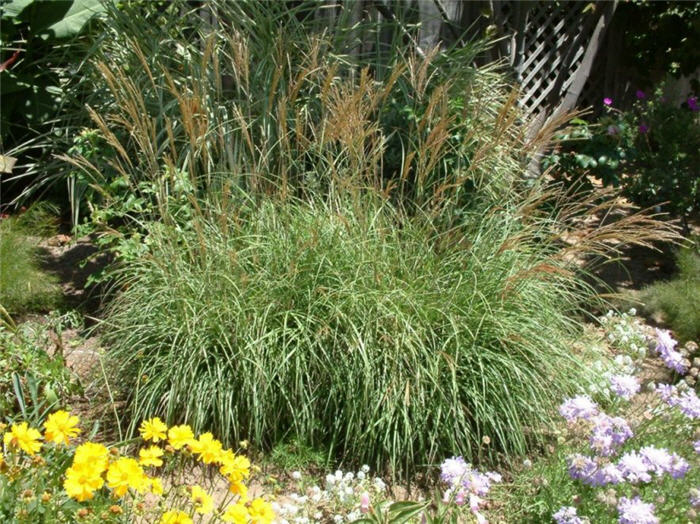| Botanical Name: Miscanthus sinensis | |
| Common Name: Japanese Silver Grass, Maiden grass |

-
Anatomy
-
Culture
-
Design
Plant Type
Perennial, Grass
Height Range
3-6', 6-12'
Flower Color
Pink, Purple, Red, White
Flower Season
Summer, Fall
Leaf Color
Green, White, Variegated
Bark Color
n/a
Fruit Color
n/a
Fruit Season
n/a
Sun
Full, Half
Water
Medium, Extra in Summer
Growth Rate
Fast
Soil Type
Sandy, Clay, Loam, Rocky, Unparticular
Soil Condition
Average, Moist
Soil pH
Neutral
Adverse Factors
n/a
Design Styles
English Cottage, Formal, Japanese, Mediterranean, Water Garden, Wetlands, Native Garden, Woodland
Accenting Features
Showy Flowers, Unusual Foliage
Seasonal Interest
Winter, Summer, Fall
Location Uses
Background, Perennial Border, Shrub Border, Foundation, Park, Swimming Pool, Walls / Fences, With Rocks
Special Uses
Container, Cut Flowers, Filler, Screen, Mass Planting
Attracts Wildlife
Birds, Butterflies
Photographer: El Nativo Growers, Inc.
-
Description
-
Notes